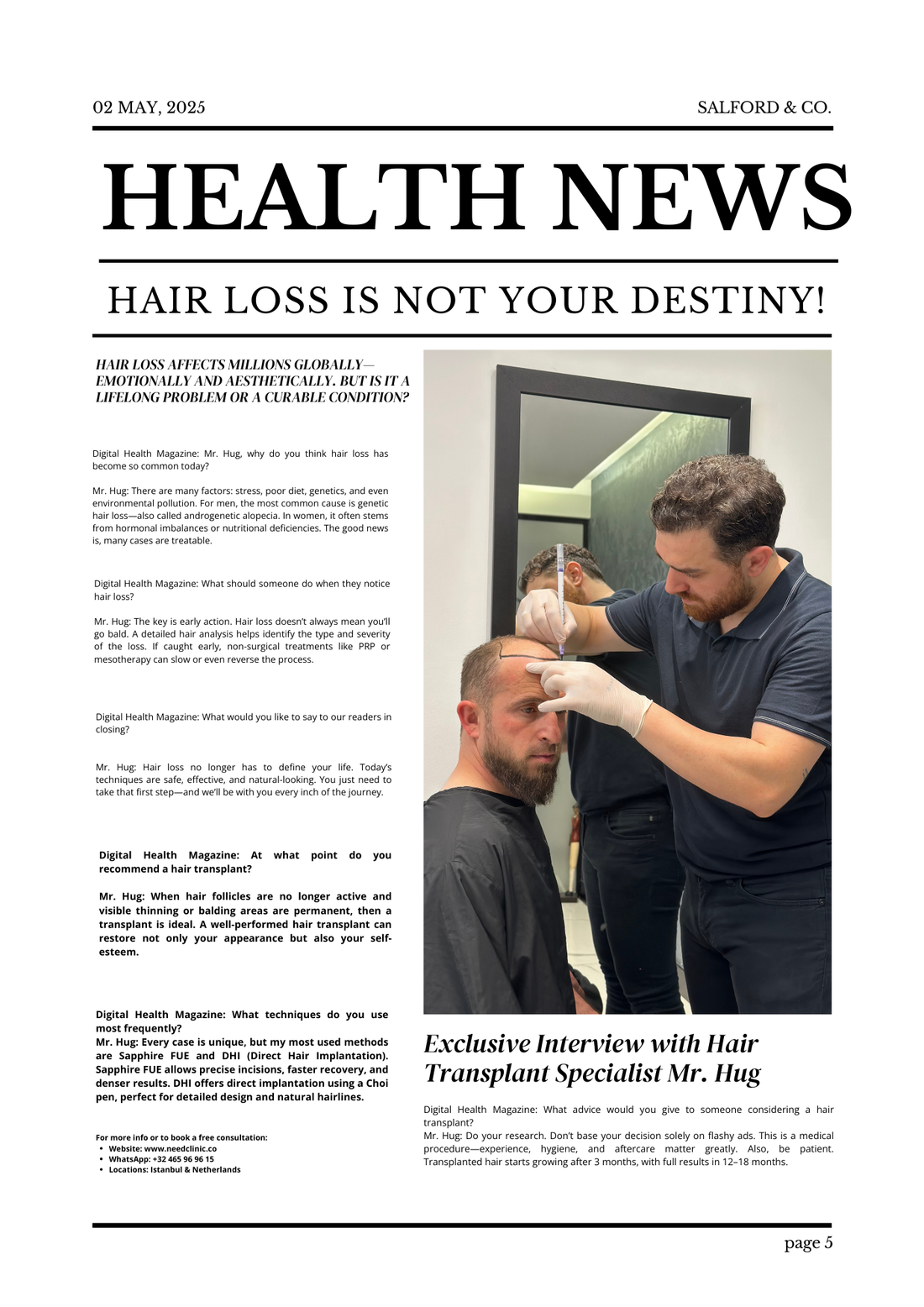
Mr. Hug news
Share
Hair Loss Is Not Your Destiny!
Exclusive Interview with Hair Transplant Specialist Mr. Hug
By Digital Health Magazine
Hair loss affects millions globally—emotionally and aesthetically. But is it a lifelong problem or a curable condition? We sat down with renowned hair transplant specialist Mr. Hug, who has performed thousands of successful procedures, to get his expert insight on hair loss and modern hair restoration methods.
Digital Health Magazine: Mr. Hug, why do you think hair loss has become so common today?
Mr. Hug: There are many factors: stress, poor diet, genetics, and even environmental pollution. For men, the most common cause is genetic hair loss—also called androgenetic alopecia. In women, it often stems from hormonal imbalances or nutritional deficiencies. The good news is, many cases are treatable.
Digital Health Magazine: What should someone do when they notice hair loss?
Mr. Hug: The key is early action. Hair loss doesn’t always mean you’ll go bald. A detailed hair analysis helps identify the type and severity of the loss. If caught early, non-surgical treatments like PRP or mesotherapy can slow or even reverse the process.
Digital Health Magazine: At what point do you recommend a hair transplant?
Mr. Hug: When hair follicles are no longer active and visible thinning or balding areas are permanent, then a transplant is ideal. A well-performed hair transplant can restore not only your appearance but also your self-esteem.
Digital Health Magazine: What techniques do you use most frequently?
Mr. Hug: Every case is unique, but my most used methods are Sapphire FUE and DHI (Direct Hair Implantation). Sapphire FUE allows precise incisions, faster recovery, and denser results. DHI offers direct implantation using a Choi pen, perfect for detailed design and natural hairlines.
Digital Health Magazine: What advice would you give to someone considering a hair transplant?
Mr. Hug: Do your research. Don’t base your decision solely on flashy ads. This is a medical procedure—experience, hygiene, and aftercare matter greatly. Also, be patient. Transplanted hair starts growing after 3 months, with full results in 12–18 months.
Digital Health Magazine: What would you like to say to our readers in closing?
Mr. Hug: Hair loss no longer has to define your life. Today’s techniques are safe, effective, and natural-looking. You just need to take that first step—and we’ll be with you every inch of the journey.
For more info or to book a free consultation:
-
Website: www.needclinic.co
-
WhatsApp: +32 465 96 96 15
-
Locations: Istanbul & Netherlands

